After 4 hours with Metaphor: ReFantazio, it's the surprising ways it diverges from Persona that I'm most excited about
It may feel familiar to Atlus fans, but the new ideas in Metaphor steal the show.
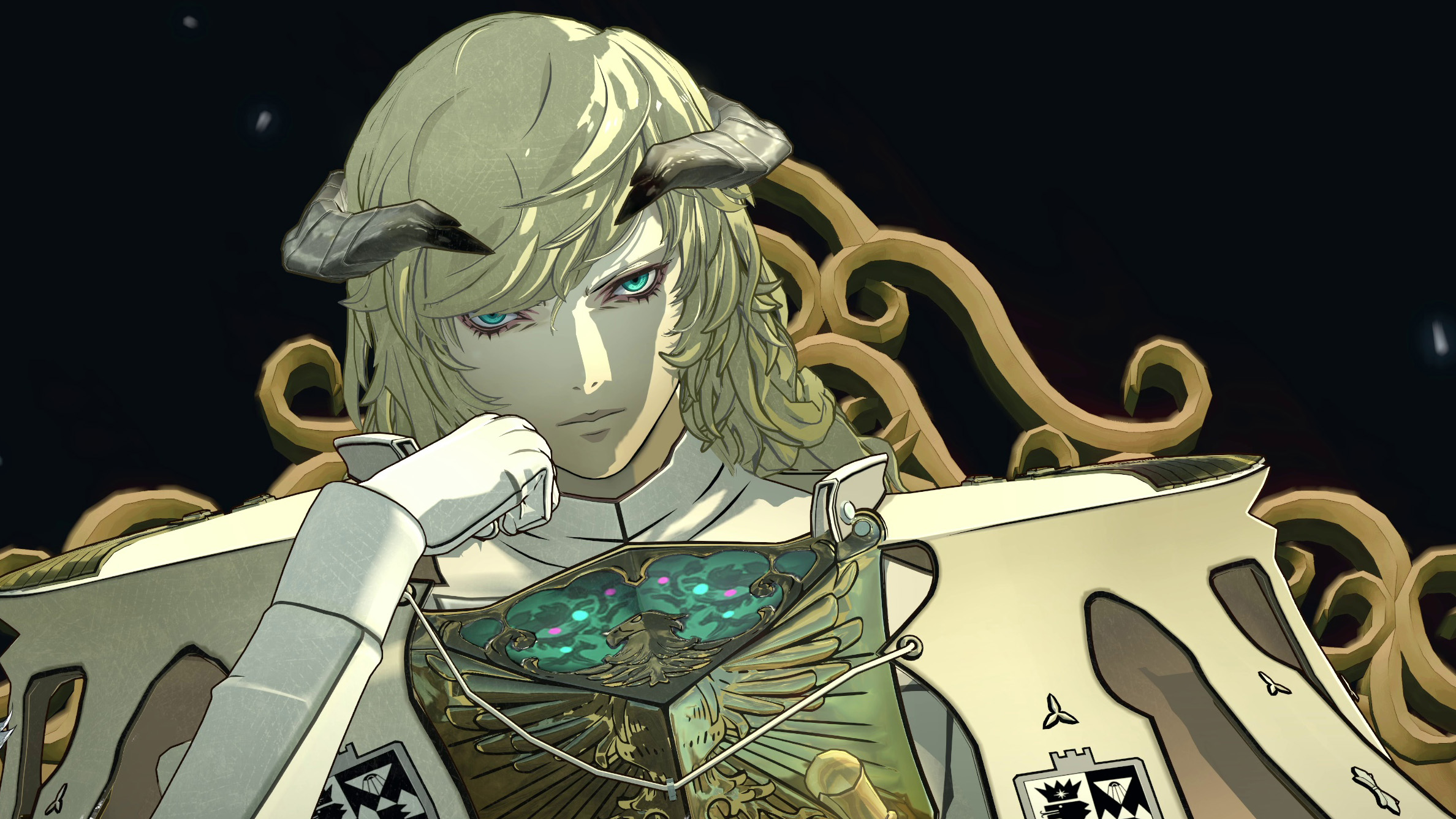
When I talk to friends about Metaphor: ReFantazio, I really try to do so without constantly mentioning Persona in the same breath. Now that I've had the opportunity to preview the game for approximately four hours, I might as well give up. Within a handful of minutes my blue-haired protagonist entered a big city for his first time, met a character who had "future best friend" written all over him, and they soon found themselves facing a powerful monster that would surely kill them both. Just in the nick of time, an otherworldly power emerged from the depths of my protagonist's soul. Guided by a mascot fairy companion who provides commentary in battles, I commanded him to cast elemental magic and vanquish it for good. The main character didn't literally scream "Persona!" but I sure was thinking it.
From there I kept a tally of how many trademark Atlus RPG mechanics I noticed. I saw a "Velvet Room" in the form of a library where I could customize my party's powers. The Press Turn mechanic from Shin Megami Tensei appears. Social Links, social stats, a calendar system—maybe they have different names and purposes in Metaphor, but they're all undoubtedly here.
Despite that, it was Metaphor's innovations that held my attention. The game's intro asked me about how I view works of fantasy, and it made me enter my name. Not the name that I wanted to give the protagonist—my name. Later, my colleague Eric Van Allen noticed that the player's real name is vaguely alluded to within a tome in that aforementioned library. My mind started to go wild. What is Metaphor going to do with my name? Why are all the horrific boss monsters referred to as "humans?" Am I going to be the final boss!?
As much as I love the school-based shenanigans of the Persona series, I'm so ready to uncover just what's going on in the world of Metaphor: ReFantazio.
Dungeons and dragons and debates
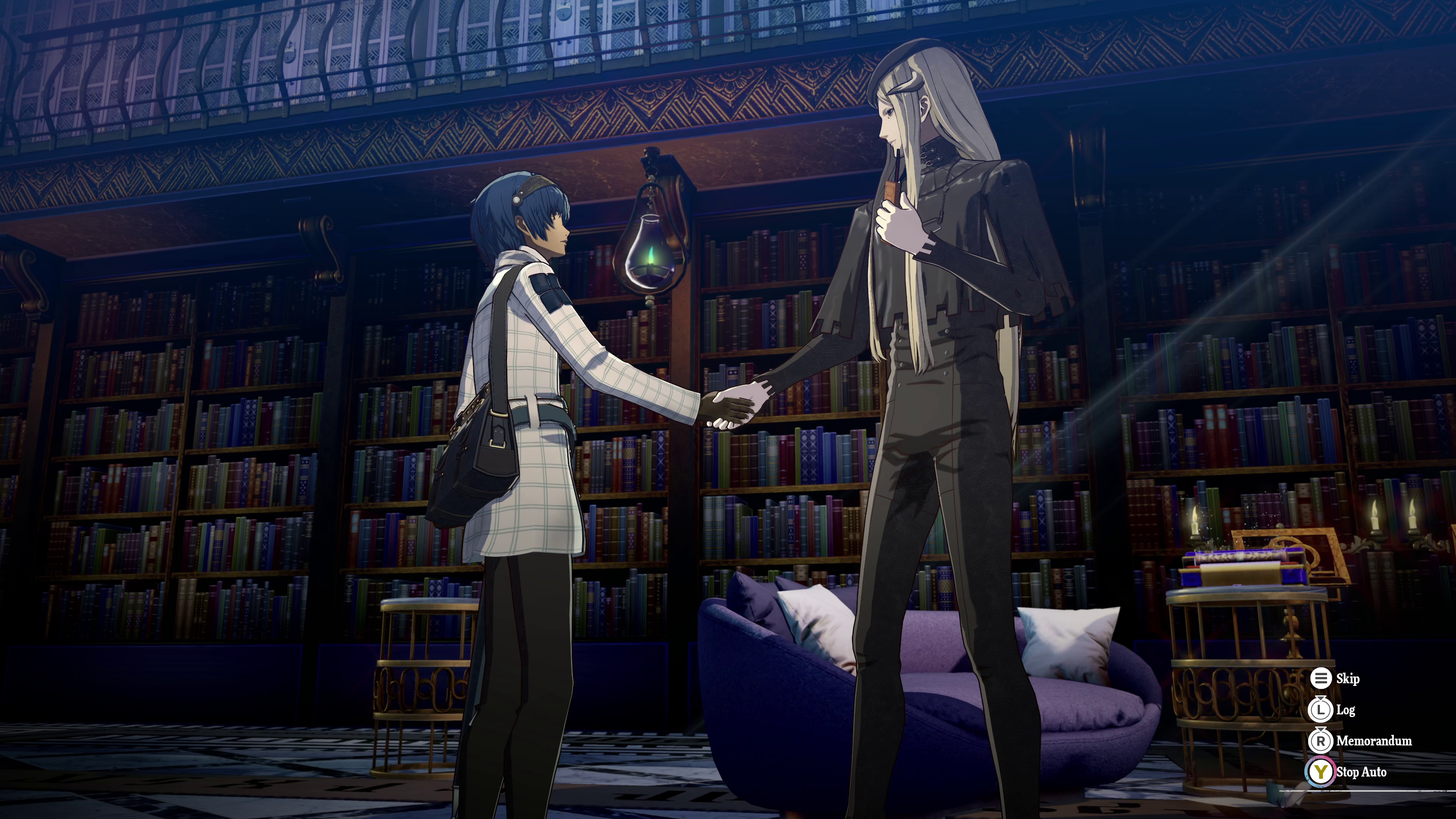
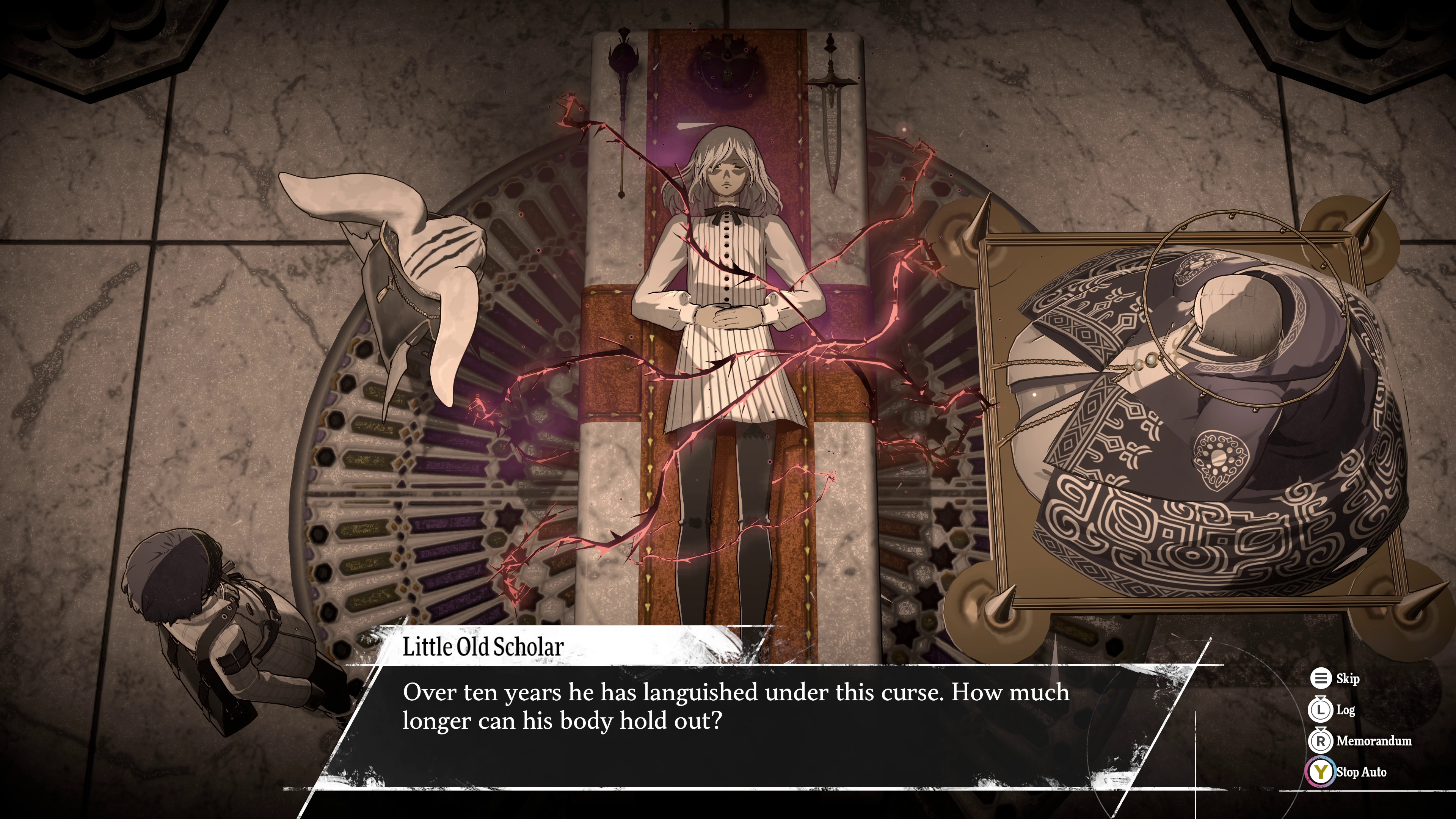
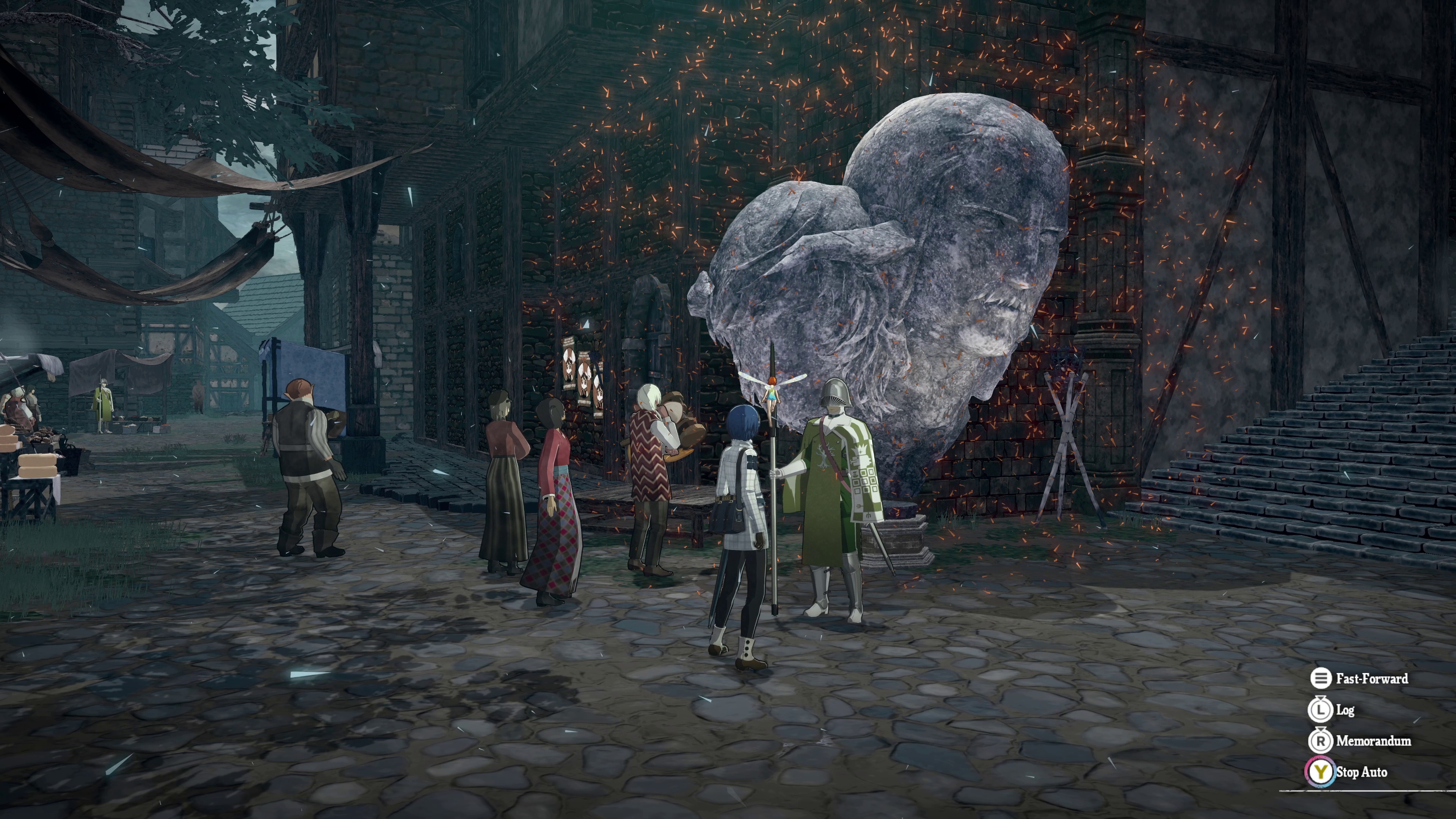
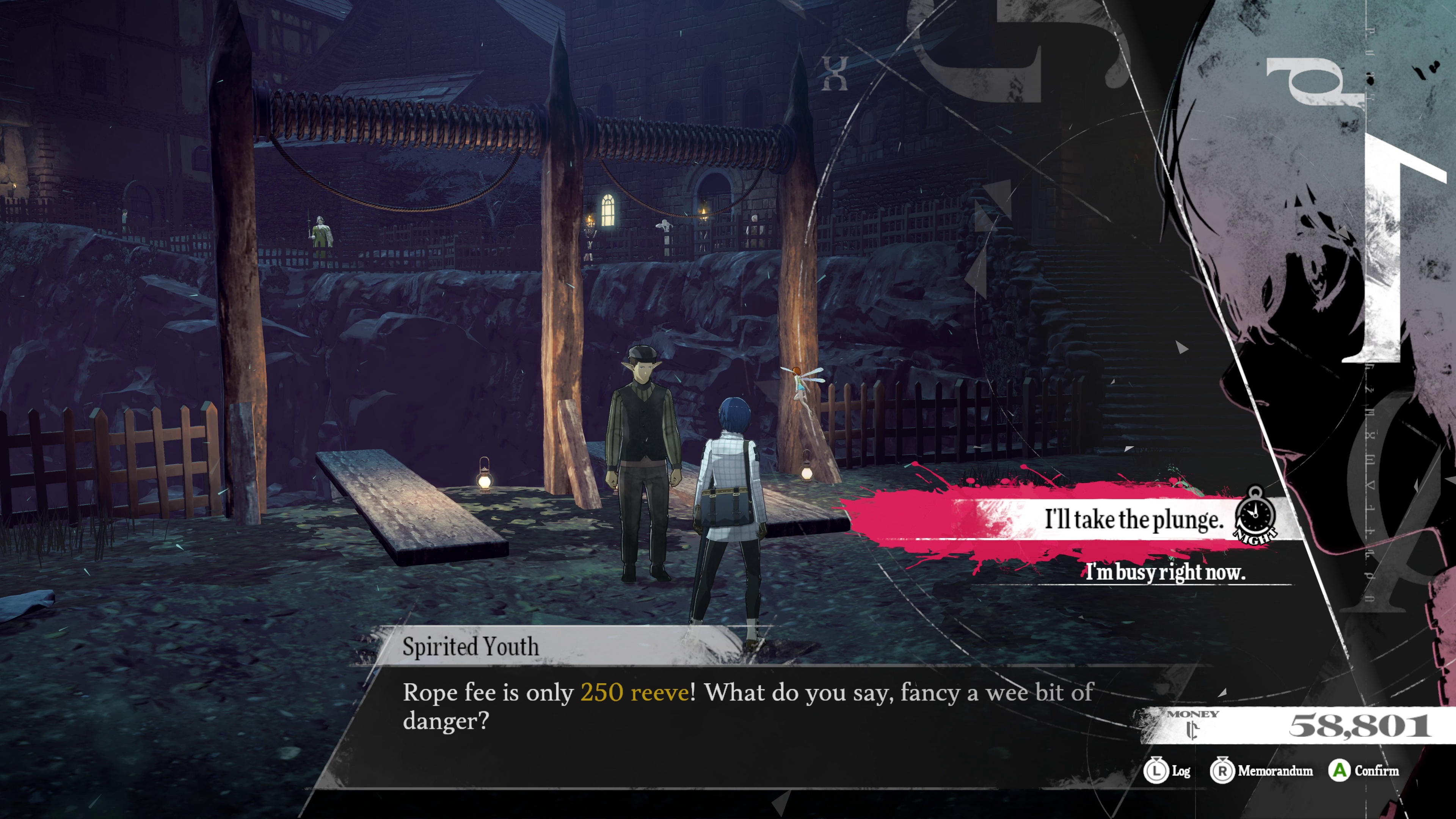
Metaphor's early game strikes a slow pace to ease in players who are totally unfamiliar with RPGs, let alone Persona. The opening hour primarily focuses on establishing the world's lore, with tutorials for its base gameplay mechanics sprinkled throughout. I didn't love how the story almost immediately used its in-game lexicon as if I should already know the difference between the Clemar and the Elda tribes. But to its credit, there were enough context clues to grasp the plot's broad strokes. There is a glossary in the main menu for those who need to fill in the blanks, but it's not completely necessary to read.
Once I reached the tutorial dungeon, the pacing of the story and battle mechanics started to click. Sword in hand, I rushed into the halls of the fortress I was investigating and slashed roaming enemies to initiate combat. While I could sneak up on enemies to gain initiative on them with a strategic strike, it was easier to use a basic three-hit combo to fill a meter that achieved the same effect once it maxed out. For most enemies in the beginning I found these moments of real-time combat to be a tad rudimentary. My brain was on autopilot as I approached monsters head-on and smacked them like I was playing a musou.
Past the tutorial dungeon, I thankfully did need to pay more attention to how I approached monsters. The dodge roll button, which I ignored at first, became essential as enemies started to telegraph sneak attacks that would make me begin combat on the backfoot if the hit connected. I could have chosen to press the Y button to just get right to the turn-based tussling with these foes, but my ego was just too big to pass up the opportunity to inflict extra damage. I enjoyed the balance of risk and reward at play with this system, though I do hope these real-time elements have so way to stay fresh as the game goes on. From what I could see, the game’s progression systems all point towards focusing on its turn-based combat.
Keep up to date with the most important stories and the best deals, as picked by the PC Gamer team.
At least I'm already pretty confident Metaphor's turn-based combat will be able to sustain a full-length game on its own. Battle mechanics are borrowed from Atlus' signature games, but I'd be lying if I said I wasn't thrilled to see them again. I loved optimizing Metaphor's equivalent of the Press Turn system to score extra attacks, and I even enjoyed testing which elemental or physical attacks hit my enemies the hardest. The battles themselves move quickly too, letting me resolve many encounters within a handful of seconds.
The team building in Metaphor commanded my attention with a surprising variety of "archetype" classes that function similarly to "jobs" from early Final Fantasy games. Party members can equip and upgrade a wide variety of archetypes to change their stats, magic, and equipment. Use an archetype enough, and it can potentially upclass into an even stronger form. While my archetype options were limited in the early game, I still found ways to optimize my party to my liking. Even though the best friend stand-in Strohl very dramatically became a warrior in a key story moment, I couldn’t help but giggle as I slapped the mage archetype on him immediately after. Sorry bud, maybe you look like a knight, but your strength stat tells a different story.
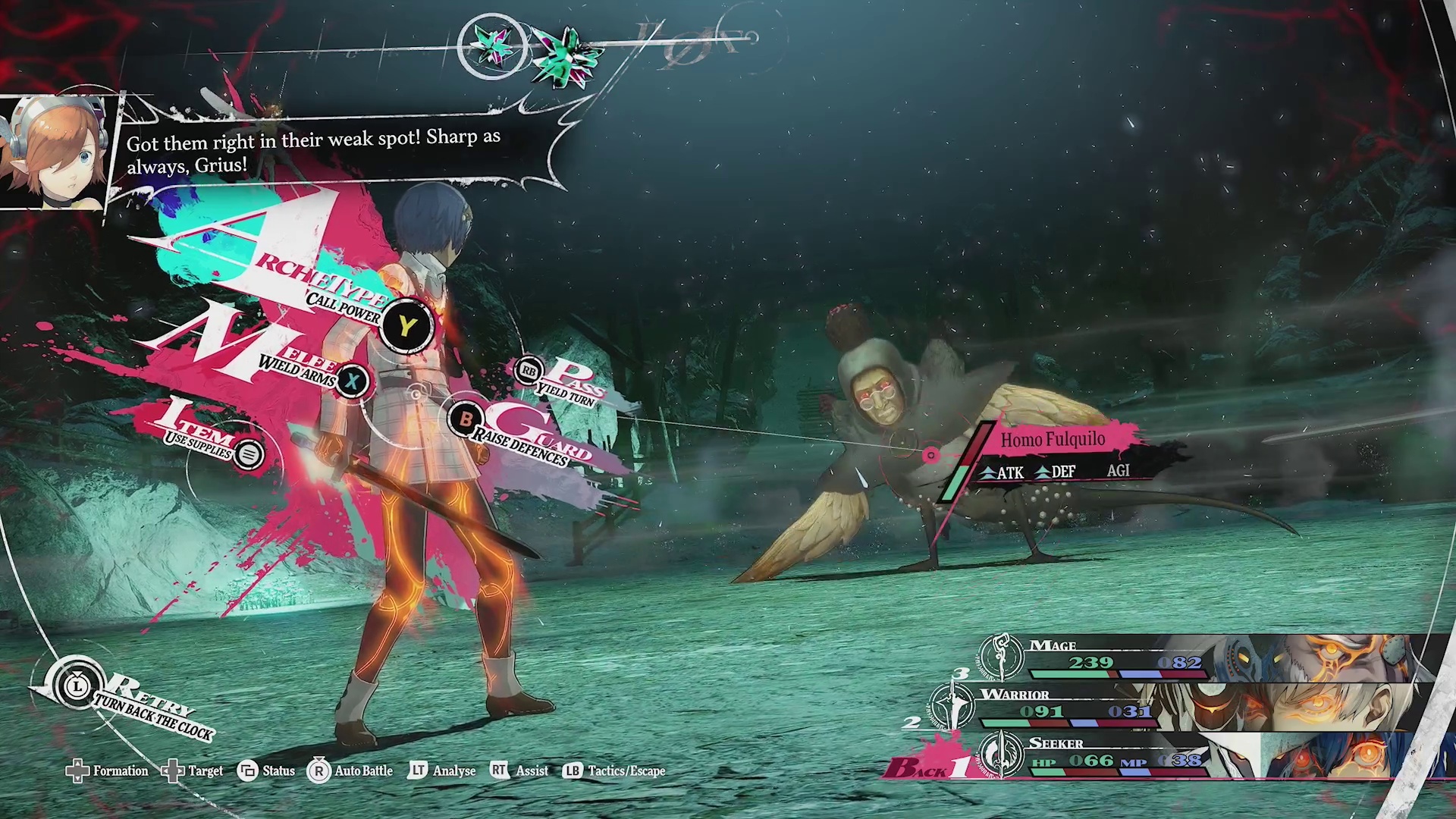
Archetypes can be strengthened via Metaphor's equivalent of Social Links, which brings me to the life sim elements (there's my brain screaming "Persona!" again). The preview I played required me to jump into a new save file several hours into the game to test these systems, so I had to figure out a lot of mechanics on the fly; my experience may have felt more overwhelming than it will in the full game. Also, the plot jumped ahead to my main character now journeying to become a king, which I wasn’t given any context about outside of what’s been revealed in the game’s marketing materials.
Again, it's familiar ground. Each day has a morning and night phase, and I had to figure out how to spend my time to complete quests and raise my social stats. I got into debates with people who thought they’d make better kings than me (it sounded like these characters have proper introductions in the full game), which could potentially increase my eloquence and my reputation attributes. One character I debated suggested turning half the city into taverns to provide government-subsidized wine, which handily won the crowd over my attempts to appeal to reason. Honestly, even as I sit here typing I can't think of how I'd effectively argue against that one.
Metaphor producer Junichi Yoshizawa repeatedly mentioned at the preview event that its political themes weren't necessarily a commentary on any real-world elections. Despite this, the political arguments were so utterly ridiculous that they wrapped around into feeling bizarrely poignant. At one point I battled an older man who wanted to become king so he could take all money and resources away from the youth and let the elderly population live lavishly. I've never met anyone who's explicitly said that, but I could name people who I'm sure have thought that.
Time to embrace anxiety
The travel system in Metaphor is where the daily life mechanics start to really form their own identity. To complete many quests in Metaphor, some of which have strict deadlines, the party needs to spend in-game days traveling to specific locations. These days aren't totally "wasted," as I could spend time with my companions on the road to increase my stats and relationships. Even though he didn’t make the best first impression, I wound up spending a lot of time with Strohl, my future best friend. I mostly attribute this to his voice actor Stewart Clarke, who injected so much passion and conviction into the character’s dramatic moments that I found myself rooting for him for the rest of my session.
This system encourages a big picture approach to time management. I obsessively scoured the city I was in for quests and optional hunts before picking a zone to travel to, starting with whichever location had the most objectives I could take care of in one day. In a tragic blunder, I accidentally arrived at an optional dungeon on a rainy day, which massively strengthened all the monsters inside. I can't lie—I felt stressed as I tried to decide when and where to travel. At the same time, I'm eager to learn how to min-max this system across a full playthrough.
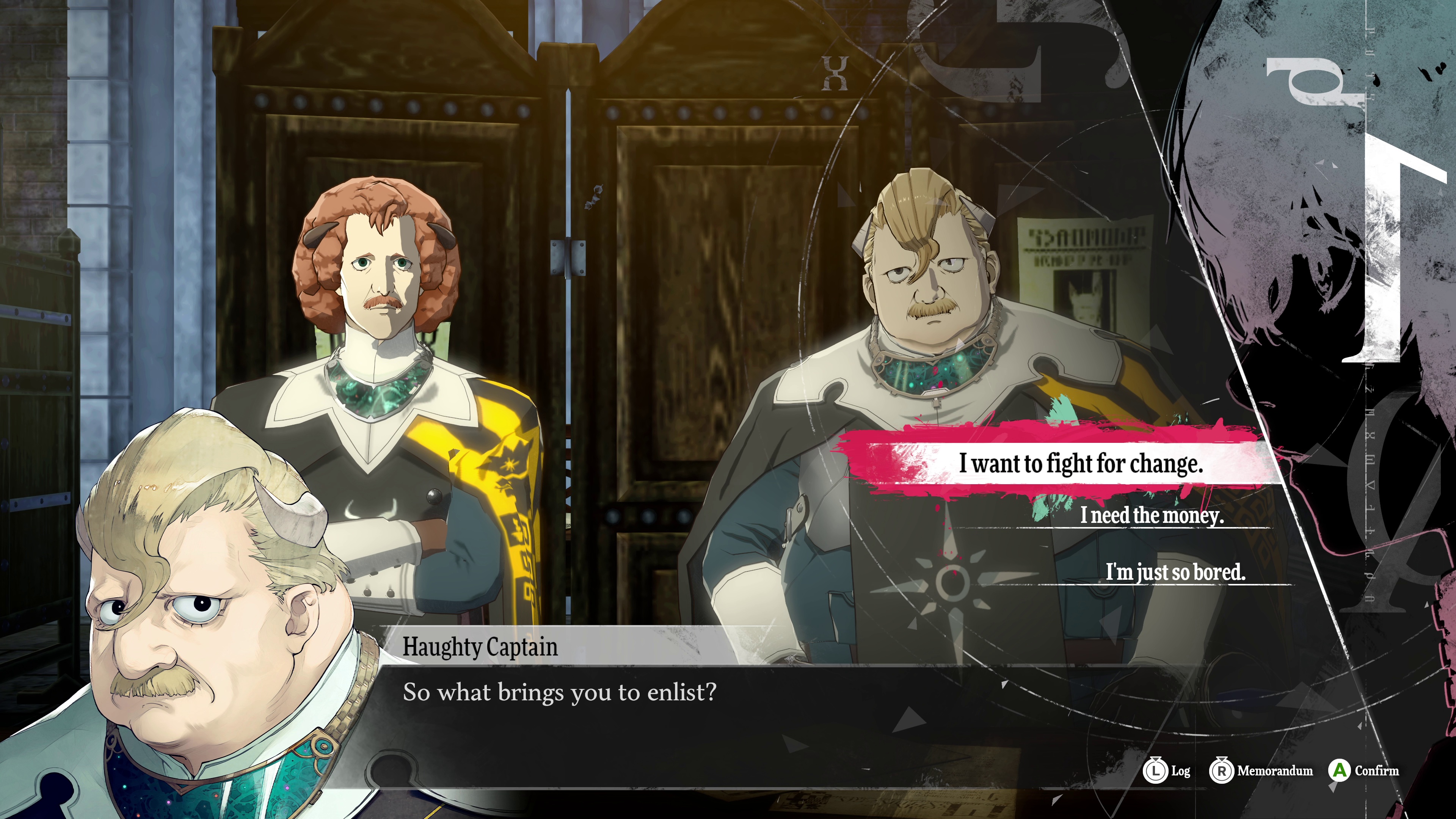
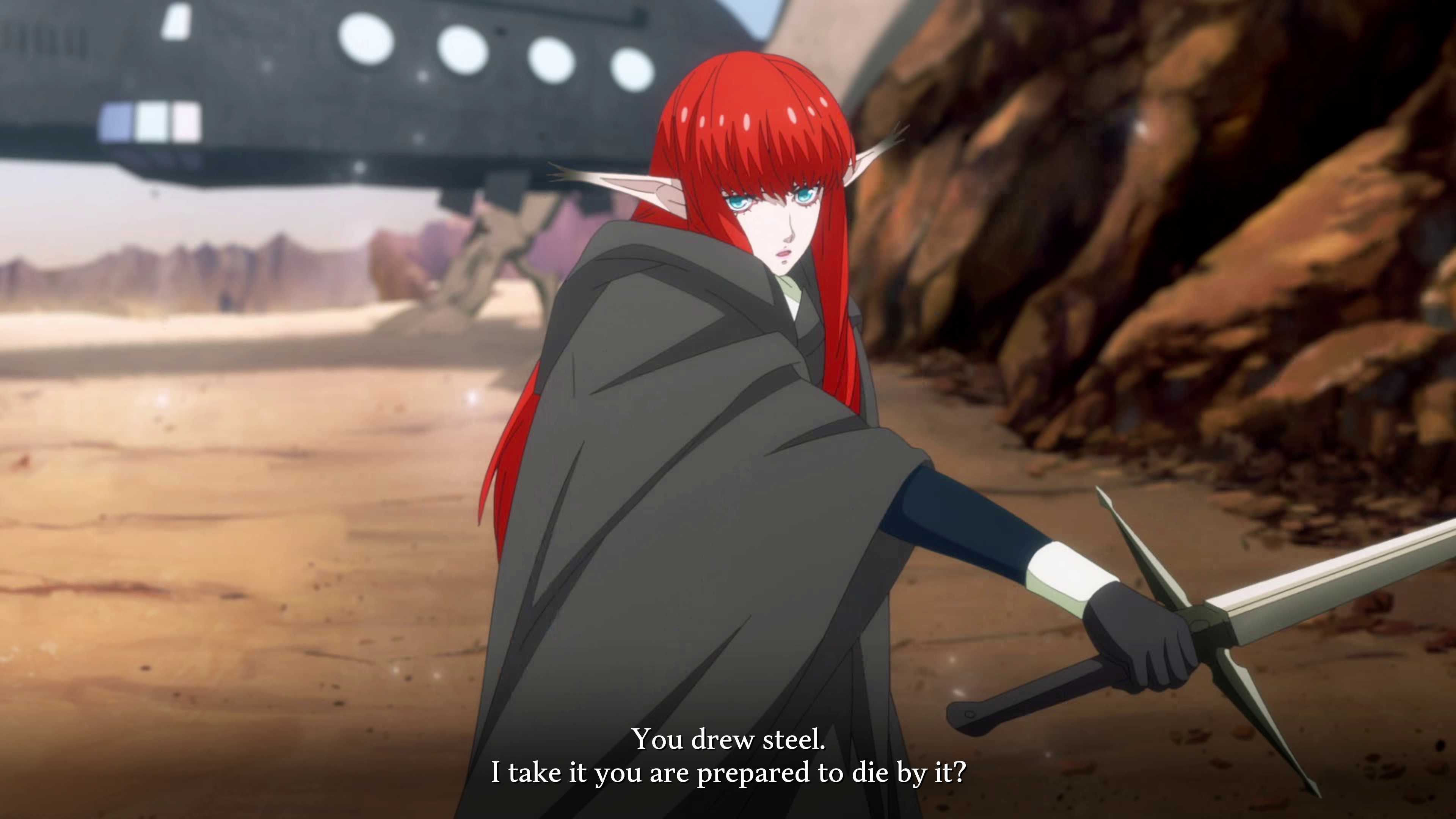
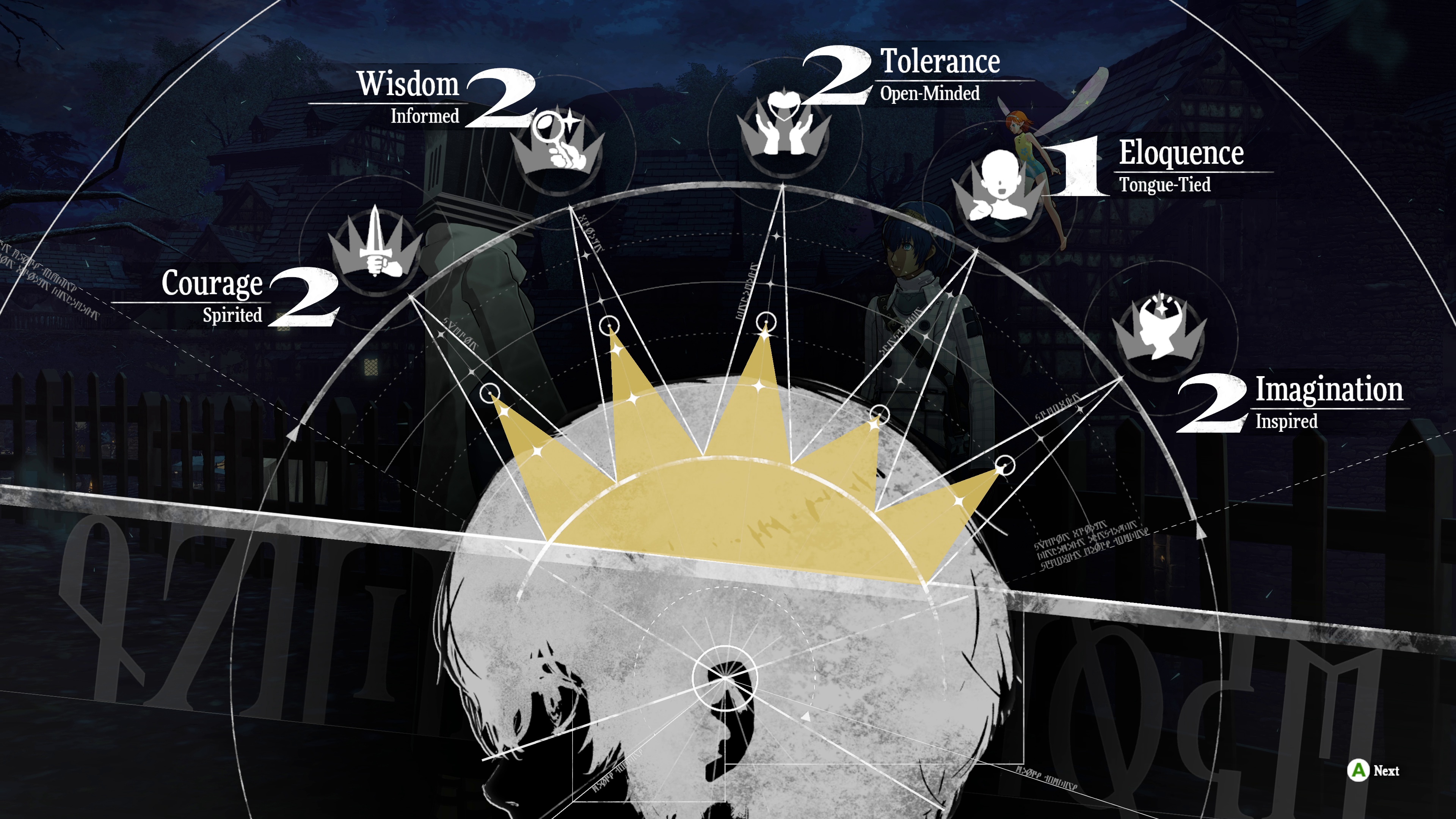
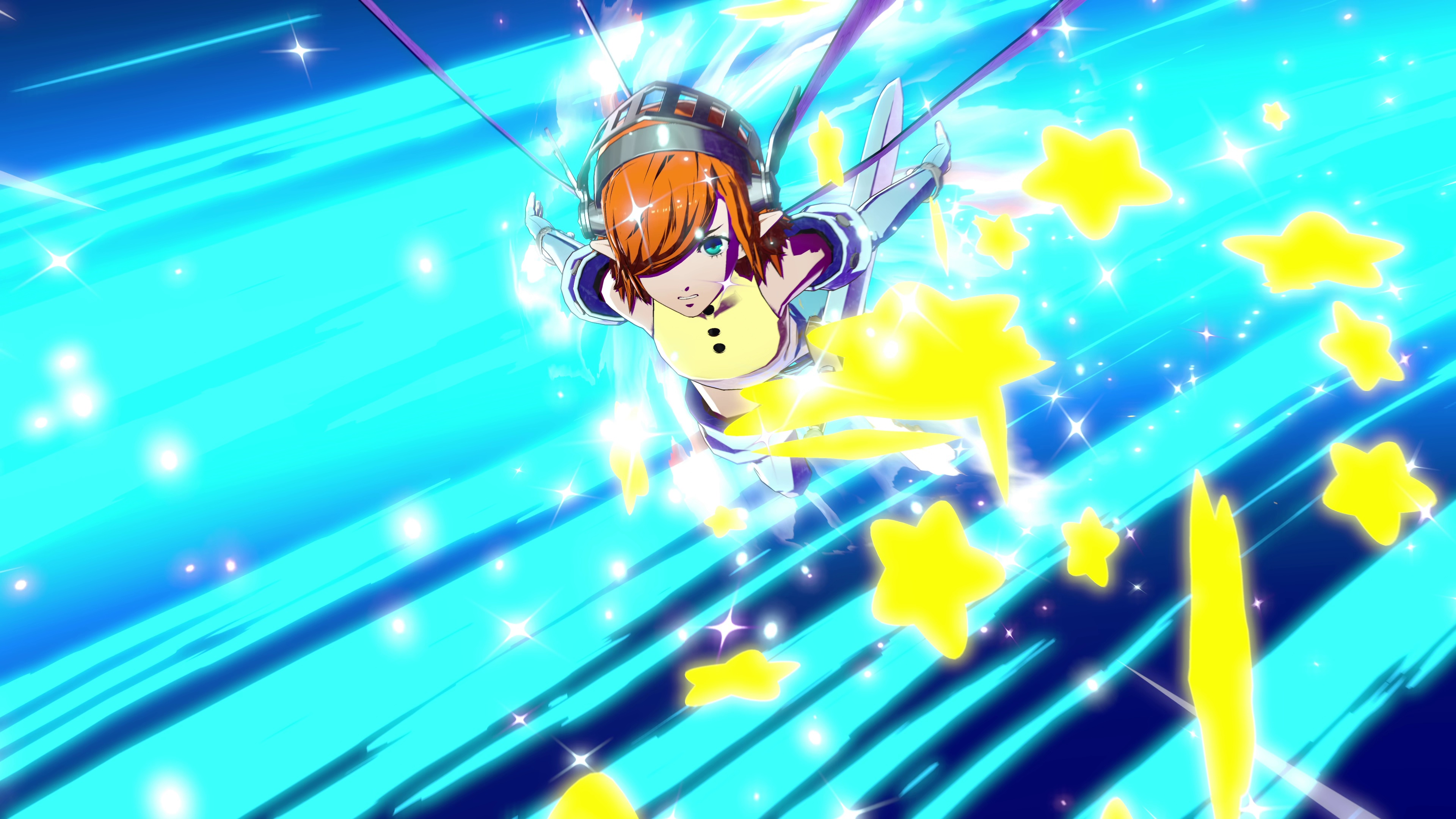
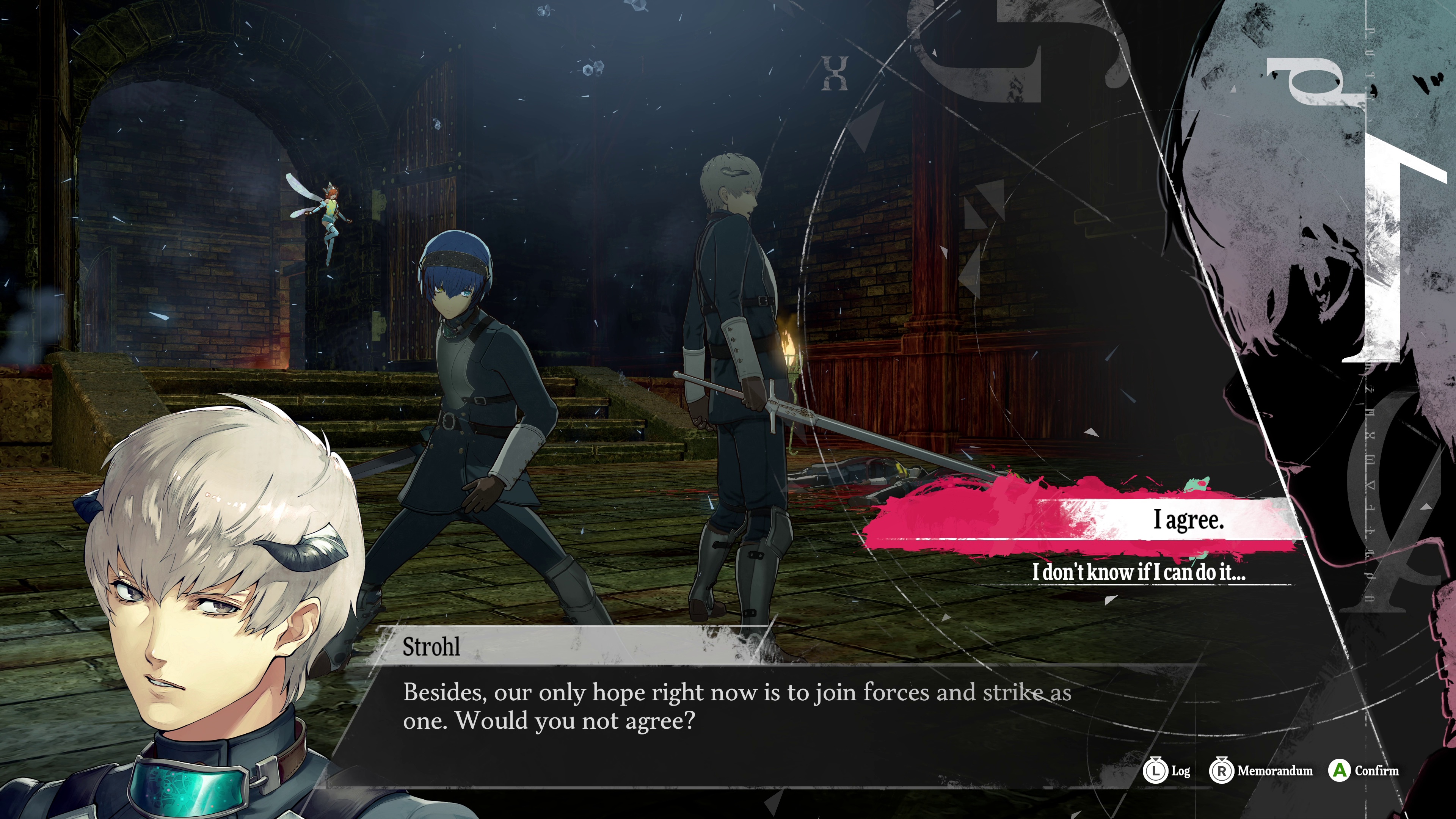
As an aside, the sheer existence of optional dungeons in Metaphor excites me. I often find that Persona devolves into front-loading all dungeon exploration into a single day so I can spend more time advancing Social Links. This is efficient, yes, but playing "optimally" makes the pacing unbalanced. By comparison, Metaphor seems to intertwine its combat and life simulation elements more closely. By the time this part of my preview had ended, I still had so many enemies to hunt and areas to explore.
The original ideas in Metaphor are so good that I wish it did more to differentiate itself from Persona. The Social Links equivalent still required me to guess which multiple choice response would most please whoever I was conversing with. Little "happy with my answer" cubes appeared above their heads instead of music notes, but I got the picture. Considering how many pursuits Metaphor seems to offer, I am worried about how much I'll need to optimize these (non-romantic) relationship mechanics so I can both strengthen my archetypes and explore all the optional dungeons in time. To be more specific, I hope I don't feel pressured to always guess the "right" answers in every single conversation.
At the same time, already worrying about being able to do everything is a testament to how enthralled I was with Metaphor. The mix of strategic combat, creative dungeon design, and rewarding team building is so good that I don't want to miss any of it. And while I still don't have a great idea of where the story is going, I found the main characters likable enough that I want to spend more time with them.
I wasn't able to get a firm answer on whether I should expect to play the game multiple times to see everything in it. But regardless of how that pans out, I have a sinking feeling that Metaphor: ReFantazio is going to consume hundreds of hours of my time when it comes out in October. Based on what I've seen so far, that's a sacrifice I'm willing to make.
Timothy (you can call him Tim) has been writing professionally for over a decade, and he’s waxed poetic about his favorite videogames on the internet for even longer. It was only a matter of time until he combined these two pursuits, accruing bylines at Destructoid, Kotaku, and now PC Gamer. He will try just about anything, but he’ll throw himself headfirst into RPGs, action games, platformers, and most things retro.
Tim’s greatest interest is in writing features that analyze the games we play and unpack the ways we get invested in them—whether it’s with a unique story or just really fun game mechanics. When he’s not writing, you can catch him reminding everyone to play more Ys.


